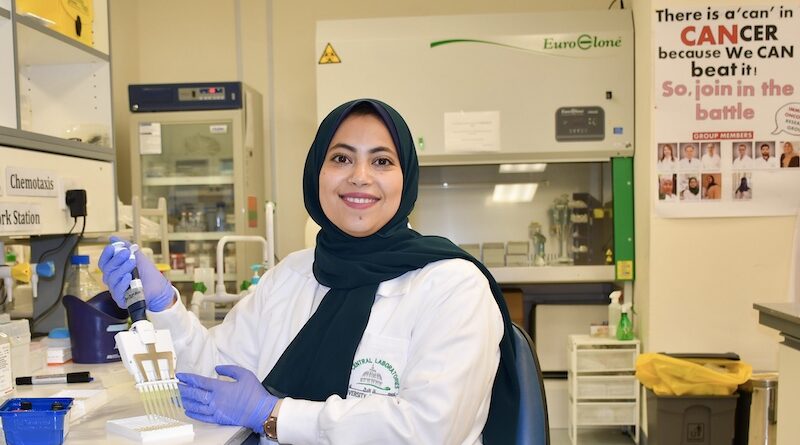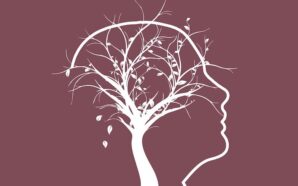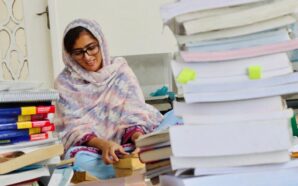The L’Oréal-UNESCO For Women in Science Middle East Regional Young Talents Program, in partnership with Khalifa University of Science and Technology, earlier celebrated a decade of empowering female scientists from the GCC in the fields of Life Sciences, Physical Sciences, Mathematics and Computer Science, who have blazed trails and are changing the landscape of scientific discovery in the region. Since its inception in the GCC in 2014, the program has made prodigious strides in nurturing and furthering the research endeavors of 51 female Arab scientists by awarding endowments totaling AED 3.4 million and supporting their professional growth. Among them are several scientists who have also received international recognition, with five going on to win the International Rising Talents Awards, and another four scientists receiving the L’Oréal-UNESCO For Women in Science International Award, as well. The regional program is part of the L’Oréal-UNESCO’s global For Women in Science initiative that has already recognized over 4,100 phenomenal researchers and more than 127 International Laureates from more than 110 countries since its inception in 1998. For the fifth year in a row, the program has been endorsed by H.E. Sarah Al Amiri, UAE Minister of State for Public Education and Advanced Technology and Chairperson of the UAE Space Agency. H.E. said: “The extraordinary accomplishments and dedication of women scientists in the region has paved the way for progress in various fields, influencing everything from healthcare and technology to environment sustainability and space exploration. Initiative like the one by the Foundation L’Oréal and UNESCO has been empowering female game-changers, encouraging more women into STEM careers, and paving the way toward diversity. Such programs create a necessary foundation in our pursuit for scientific progress, innovation and a more inclusive society.” According to the latest UNESCO Science report, even today, just one in three researchers is a woman, and this drops by nearly half at a senior level. Additionally, less than 4% of women have been awarded a Nobel Prize for Science. These unsettling figures continue to propel the L’Oréal-UNESCO For Women in Science Program, which was established on the ethos that ‘The world needs science and science needs women’. The program was created to break down barriers to progress for women in STEM and provide them with the tools to succeed.
Dr. Noha Mousaad Elemam (UAE) was selected For her research on developing early breast cancer biomarkers with the goal of understanding cancer progression and achieving better patients’ survival rates.
Tell us about yourself, your academic and professional journey.
I began my academic journey by pursuing a bachelor’s degree in Pharmacy and Biotechnology from the German University in Cairo, where I developed a strong foundation in several fields of medical sciences. Following my undergraduate studies, I embarked on a master’s program, which allowed me to set my first steps in the field of immunology. I followed my passion and pursued a Ph.D. degree in Molecular Medicine at the University of Sharjah, where I deepened my knowledge in the immunology of autoimmune and cancer diseases. I started my professional career as a postdoctoral research associate in the Immuno-Oncology group at the University of Sharjah, where I gained hands-on experience in various techniques as well as mentorship and leadership skills. Currently, I am excited to bring my academic and professional experiences together as I pursue as a Senior Lecturer of Immunology at the College of Medicine at the University of Sharjah.
What was the inspiration behind your choice of study and vocation?
My parents were always a true inspiration to me. From a young age, my parents instilled in me a profound appreciation for knowledge and a curiosity-driven mindset, inspiring my lifelong journey in scientific exploration and medical research. I was always driven by a deep fascination and curiosity for science. During my studies, I realized that science offered a unique blend of intellectual challenge and practical application, making it a perfect fit for my career aspirations. As the Nobel Prize Laureate in Chemistry, Irene Joliot-Curie, once said “Without the love of research, mere knowledge and intelligence cannot make a scientist”. Moreover, I was fortunate to come across inspiring mentors and role models, who showcased the incredible potential for growth and innovation. Their dedication, commitment, and impact on society served as a constant source of inspiration to me.
What have been some of the most significant milestones in your professional journey?
Throughout my professional journey, I’ve been fortunate to achieve several significant milestones that have not only shaped my career but also contributed to my personal growth. One of the earliest milestones was completing my postgraduate studies. This marked the beginning of my professional life and allowed me to learn about the field of immunology and acquire several skills. A major turning point came when I was promoted to senior lecturer at the University of Sharjah. This promotion recognized my dedication and contributions and provided me with the opportunity to take on more responsibility and lead important projects. Looking ahead, I am eager to continue achieving meaningful milestones in my professional journey, by utilizing the experiences and skills I have gained to make a lasting impact in my field. These milestones also serve as a source of motivation to continually strive for excellence and embrace new challenges.
What are some of the challenges that you have faced and how did you overcome them?
As a female postdoctoral researcher, I have encountered several challenges throughout my academic and research journey, and I learned to overcome them with resilience and determination. One significant challenge has been achieving work-life balance. Balancing the demands of research, long hours in the lab, and family responsibilities can be challenging. To overcome this, I have become adept at time management, setting clear priorities, and seeking support from my family and colleagues. Another challenge is the unplanned outcomes and results of experiments in the medical field. To overcome this, I’ve actively sought to always follow my passion and be persistent in pursuing the scientific career I always dreamt of. These experiences have made me a more resilient and determined scientist, and I am committed to contributing to positive changes in the research community for future generations of female researchers.
Do you believe gender has any part to play when it comes to challenges and milestones?
I believe that gender can play a role in both the challenges and milestones that individuals experience in their academic and professional journeys, especially in academia and research. For instance, gender bias can affect the evaluation of a person’s abilities and contributions, leading to unequal opportunities and roles. Also, women often bear a larger share of caregiving responsibilities, which can make it challenging to maintain a balance between work and personal life, especially in research positions that may demand long hours and frequent travel. On the other hand, the recent recognition of gender disparities has led to increased efforts to promote diversity and inclusion in academia and research. This was encouraged by the presence of successful female role models who can inspire and motivate aspiring female researchers to overcome challenges and pursue their goals.
And most importantly, do you think gender can also play a part when it comes to science in the sense – how you work, analyze, formulate, develop and/or create? Why or why not?
Certainly, men and women have different communication and collaboration styles, and this can eventually impact how scientific teams function and generate ideas. Also, they may bring diverse perspectives and strategies to address scientific challenges, leading to more comprehensive solutions. Gender disparities in science fields affect the choice of research topics, where a focus on specific areas of research can be dominated by one gender. Additionally, leadership skills may vary which can impact the dynamics of research teams. Despite that, diversity in scientific teams in terms of gender and background, can lead to more innovative scientific outcomes.
We would love to know more about your work, the potential impact and the promise it holds.
During my postdoctoral studies, I focused on the immuno-oncology field, particularly the breast tumor microenvironment. This research holds immense significance to me as it resonates deeply with my passion for making a tangible difference in the lives of patients and contributing to the advancement of medical knowledge. Eventually, this study will utilize the knowledge from immuno-modulation to develop novel early biomarkers for breast cancer which might help in early diagnosis and possible prevention. In addition, this might develop new therapeutic modalities in cancer immunotherapy and help understand the role of molecular and cellular immunological pathways associated with the tumor microenvironment, which may shed light on the link between inflammation and cancer. These will benefit the patient and the community by improving the patient’s survival and reducing the financial impact.
What does this recognition mean to you and how does it enable and empower you in your journey?
This award holds immense personal significance to me as it acknowledges my dedication and hard work. It also serves as a testament to the countless hours of research, collaboration, and perseverance that have gone into my work. Beyond the recognition, this award is a source of motivation, reaffirming my commitment to pushing the boundaries of knowledge and making a positive impact through my work. Moreover, it is not just a personal achievement but a platform that enables and empowers me in my ongoing journey. It opens doors to new collaborations, grants, and opportunities that can significantly accelerate my research and outreach efforts. It serves as an inspiration to the next generation of aspiring scientists, particularly those who may face similar challenges or barriers, showing them that dedication and hard work can lead to recognition and success.
Any last words?
My research journey encapsulates my aspirations, values, and dedication to both scientific progress and compassionate patient care. It represents an opportunity to leave a lasting, positive impact on healthcare practices, and I am committed to investing my energy and expertise to achieve meaningful outcomes. Winning the L’Oréal-UNESCO For Women in Science Award reminds me of the responsibility I have to pay forward in supporting others in their academic and professional journeys and fostering a spirit of innovation, inclusivity, and excellence in my field.











